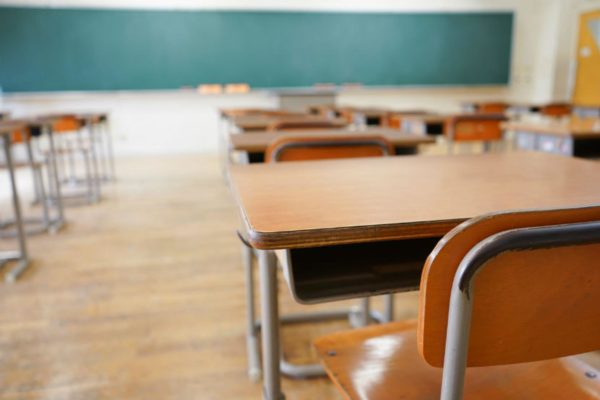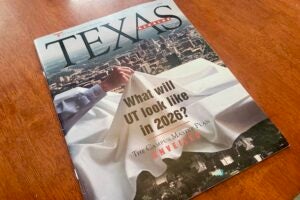The national debate on school safety continues. Some groups are calling to arm teachers while others are asking for significant investment into school security. President Donald Trump has called for arming teachers to harden campuses and most recently, U.S. Education Secretary Betsy DeVos began considering allowing schools to use federal money to purchase weapons.
Political agendas focused on arming teachers and administrators are driven by misplaced values about the role of schools in communities. They do little to address the underlying problems that lead to school shootings: mental health concerns going unnoticed and unaddressed in public schools and society.
Texas is now at the forefront of the debate on how to protect schools, and our state lawmakers will feel compelled to take action in the upcoming legislative session.
Before I started educating tomorrow’s school leaders, I worked as a school administrator of a Washington, D.C., middle school and as a teacher in a West Baltimore high school. In those jobs, I worried about gun violence and school safety.
Within my first two months as a teacher in Baltimore, a student was shot in the neck on campus. The police responded quickly, as did local politicians seeking the spotlight, but little changed in our security protocols or the way we engaged with families, students and our school police.
As an administrator of a Washington, D.C., middle school where students and their belongings passed through metal detectors, I saw firsthand how students could hide weapons around campus. I also recall the fear of finding an air rifle behind a dumpster and a small pistol with two bullets that made it into the building.
What I learned from these experiences is that no security system is foolproof. Perhaps most importantly, I learned that in each case, there were numerous warning signs displayed by the child as well as missed opportunities to provide that child with support and help.
There are a few things that Texas lawmakers can address in the upcoming legislative session to improve school safety. None of which have anything to do with guns.
First, Texas lawmakers should allocate additional funding to recruit and retain high-quality counselors, which will require the Legislature to create a mandate to employ at least one counselor per school, ensure all districts across the state comply with the American School Counselor Association’s recommendation of at least one counselor for every 250 students, and increase the starting salary for a Texas counselor with teaching experience and a master’s degree from $28,080 to a wage that will attract and retain talented individuals.
The state also needs to address a broader range of mental health issues for children and young families. Texas students are increasingly attempting suicide and have been historically underserved by the state’s system of Child Protective Services.
The state needs to rethink its system of high-stakes accountability and A-F grading system based on test scores and replace it with a more holistic measurement that meaningfully considers the physical and mental health and development of students. The current system does not incentivize efforts and investments into student mental health.
And finally, school administrators need training on school safety and how to partner with families, counselors, government agencies and law enforcement to better identify and address mental health issues. Teachers need training on how to identify early warning signs of mental health problems in their students while also developing rapport and trust with families.
Arming teachers and administrators will not change the growing trend of school shootings because it does not address the underlying reasons for such violence. Rather, arming educators would shift school resources away from classrooms and teacher professional development.
When talking about school safety, Texans should not be distracted by the gun debate. We must instead stay focused on holding our elected officials accountable for protecting and ensuring that our youngest generation is healthy and provided with the appropriate resources to thrive in schools and in life.
David DeMatthews is an associate professor of educational leadership and policy at The University of Texas at Austin.
A version of this op-ed appeared in the San Antonio Express News, Austin American Statesman and the Lubbock Avalanche Journal.




